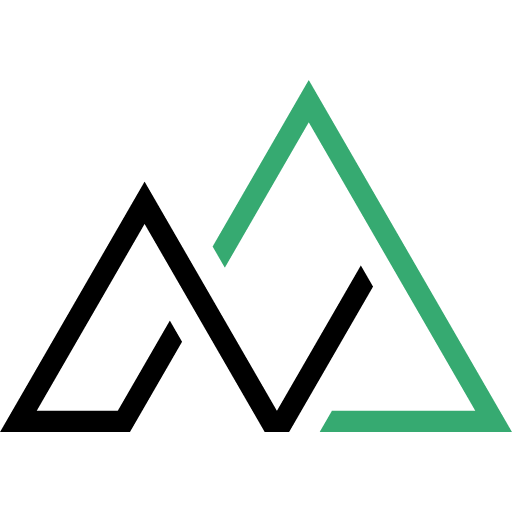If you are looking to purchase a home with a down payment that is below 20%, you must obtain mortgage loan insurance. This insurance serves as a safeguard for the lender in the event that the borrower is unable to fulfill their payment obligations.
With rising property prices and various financing options available, knowing whether you meet the requirements is crucial. This guide will outline the basic eligibility criteria for applicants, assess income and employment stability, and explain the application process. By reading this, you’ll gain clarity on securing home insurance against risks, avoiding common pitfalls, and ensuring your mortgage meets necessary percentages for approval. Don’t let confusion around debt service or mortgage requirements hold you back from homeownership.
Essential Points to Remember
- CMHC Mortgage Loan Insurance enables buyers to qualify with a down payment below 20%
- Credit scores significantly influence mortgage eligibility and interest rates for homebuyers
- A stable employment history is crucial for securing CMHC Mortgage Loan Insurance
- Potential homeowners should be prepared for additional costs beyond the down payment
- Accurate documentation enhances the chances of CMHC Mortgage Loan Insurance approval
Understanding CMHC Mortgage Loan Insurance

CMHC Mortgage Loan Insurance, regulated under the National Housing Act, is essential for homebuyers seeking to secure a mortgage with less than a 20% down payment. This insurance protects lenders and can open doors for first-time homebuyers by making it easier to qualify based on their credit score, debt serviceratio, and gross income. Understanding these elements helps potential homeowners navigate the mortgage process effectively.
What Is CMHC Mortgage Loan Insurance?
CMHC Mortgage Loan Insurance is a critical component for many homebuyers in Canada, and can allow you to qualify for a down payment of less than just 5%. This insurance helps individuals qualify for a mortgage by reducing the lender’s risk, thereby enabling buyers to enter the housing market even with limited equity. It is advisable for potential homeowners to consult with a financial adviser and explore options such as equity sharing with a corporation, which can further enhance their eligibility and facilitate homeownership despite financial challenges.
Why Do Homebuyers Need It?
Homebuyers need CMHC Mortgage Loan Insurance to qualify for a mortgage when their down payment is less than 20%, which is especially relevant in the current real estate market. This insurance, provided by the Canada Mortgage and Housing Corporation (CMHC), protects lenders, enabling buyers to access financing even with a lower credit score. Additionally, working with a skilled broker can help navigate the complexities of property tax and insurance requirements, ensuring a smoother path to homeownership alongside companies like Genworth Financial, which offers similar services to help make home buying more accessible.
Benefits for First-Time Homebuyers
First-time homebuyers benefit significantly from CMHC Mortgage Loan Insurance as it enhances accessibility to homeownership despite a limited down payment. This insurance not only reduces the lender’s risk but also helps individuals build an asset over time, thereby facilitating long-term financial stability. Moreover, mortgage insurance can provide opportunities for buyers to leverage a line of credit in the future, allowing them to expand their financial options without compromising their current investment.
Now that the basics of CMHC mortgage loan insurance are clear, it is time to consider who can access this valuable resource. Understanding the eligibility criteria will help you determine if you can take the next step in your real estate journey.
Basic Eligibility Criteria for Applicants

To qualify for CMHC Mortgage Loan Insurance, applicants must meet specific eligibility criteria. This includes minimum down payment requirements that vary based on property type, credit score considerations that influence interest rates, and debt serviceratio limits that assess financial stability. Understanding these factors is crucial for potential homeowners navigating options such as second mortgages or subsidized housing.
Minimum Down Payment Requirements
To qualify for CMHC Mortgage Loan Insurance, potential applicants must adhere to specific minimum down payment requirements. Generally, homebuyers are expected to provide a down payment of at least 5% of the purchase price for homes priced at $500,000 or less, which is an essential option for those seeking affordable housing solutions in provinces like Ontario. Applicants should also be aware that if the property value exceeds $500,000, additional down payment percentages apply, effectively influencing their equity and debt ratios when applying for a mortgage.
Here is a breakdown for the downpayment requirements:
- If the home is priced at $500,000 or less, a minimum down payment of 5% is needed.
- For homes priced above $500,000, a minimum down payment of 5% on the first $500,000 and 10% on the remaining amount is required.
- Properties priced at $1,000,000 or higher do not qualify for mortgage loan insurance.
Credit Score Considerations
Credit score considerations play a pivotal role in qualifying for CMHC Mortgage Loan Insurance. The government of Canada emphasizes the importance of maintaining a good credit score, as it directly influences interest rates and eligibility when securing a mortgage from a registered financial institution. A higher credit score can facilitate options like refinancing in the future, making it essential for potential borrowers to manage their income and financial habits effectively to improve their creditworthiness and ensure they meet the necessary criteria for obtaining mortgage insurance.
Debt Service Ratio Limits
The debt serviceratio is a crucial factor in securing CMHC Mortgage Loan Insurance, as it helps lenders assess a borrower’s ability to repay their mortgage without default. Generally, this ratio compares a borrower’s total monthly debt payments, including the mortgage, to their gross monthly income. For those considering purchasing a condominium or any property, working with a knowledgeable mortgagebroker can be beneficial in calculating this ratio accurately and determining how the price of the home affects their overall financial situation.
Understanding eligibility is just the beginning. Next, it’s crucial to examine how income and job stability can influence your investment potential.
Assessing Income and Employment Stability

Assessing income and employment stability is essential for obtaining CMHC Mortgage Loan Insurance. Verifiable income sources ensure lenders can evaluate a borrower’s financial capacity. Employment history guidelines provide clarity on job continuity, while self-employment income criteria address the unique financial situations of freelancers and business owners. Understanding these factors is crucial when preparing for property financing in construction or renovation projects.
Verifiable Income Sources
Verifiable income sources are essential in the underwriting process for CMHC Mortgage Loan Insurance, especially under programs like the MLI Select Program. Lenders typically require documentation such as recent pay stubs, tax returns, and proof of any additional income, including bonuses or commissions. By ensuring that income claims are substantiated and consistent, homebuyers can strengthen their financial profile, making it easier to qualify for mortgage products while also addressing concerns related to sales tax liabilities that may affect overall affordability.
Employment History Guidelines
Employment history is a crucial factor in obtaining CMHC Mortgage Loan Insurance, as lenders want to ensure applicants have a stable income source. Generally, a minimum of two years of consistent employment in the same field is preferred, as this demonstrates reliability and the ability to meet mortgage obligations. Freelancers or self-employed applicants should keep detailed records of their income and may need to show evidence of consistent revenue to satisfy lenders’ requirements.
- Importance of stable employment history for mortgage qualification.
- Preference for a minimum of two years in the same field.
- Considerations for self-employed applicants and the need for detailed income records.
Self-Employment Income Criteria
Self-employment income criteria are essential for individuals aiming to qualify for CMHC Mortgage Loan Insurance. Lenders typically require self-employed borrowers to provide thorough documentation of their earnings, which includes tax returns for the previous two years, profit and loss statements, and any other relevant financial records. By presenting a clear and consistent record of income, self-employed individuals can effectively demonstrate their financial stability, thereby enhancing their chances of securing mortgage insurance and becoming homeowners.
Income and employment stability matter, but knowing what type of property is needed is crucial too. Understanding the requirements and the purpose of the loan will sharpen the focus and guide the next steps.
Property Requirements and Loan Purpose

Property requirements and loan purpose are crucial for securing CMHC Mortgage Loan Insurance. Eligible property types include residential homes, condominiums, and certain multi-unit dwellings. Buyers must also be aware of maximum purchase price limits and acceptable uses of the loan, which can cover acquisitions, renovations, or refinancing. Understanding these factors ensures alignment with program guidelines and facilitates a smoother mortgage process.
Eligible Property Types
Eligible property types for CMHC Mortgage Loan Insurance primarily include residential homes, condominiums, and certain multi-unit dwellings, making it essential for potential buyers to understand what qualifies. Each property type must adhere to specific guidelines set by the Canada Mortgage and Housing Corporation (CMHC), including limitations on purchase price and intended use of the loan. For instance, while single-family homes are common choices, purchasers should also consider multi-unit properties that can generate rental income, providing both a home and an investment opportunity in the Calgary real estate market.
Maximum Purchase Price Limits
Maximum purchase price limits for properties seeking CMHC Mortgage Loan Insurance are set to ensure that buyers are making sound financial decisions based on their income and asset levels. For instance, homes priced over $1 million typically require a higher down payment, which may exceed 20%. Understanding these limits helps potential homebuyers in Calgary align their property choices with their financial circumstances and facilitates a smoother mortgage approval process.
Acceptable Loan Uses
Acceptable loan uses for CMHC Mortgage Loan Insurance include the purchase of residential properties, renovations, and refinancing existing mortgages. Buyers can utilize this insurance to secure funding for purchasing single-family homes or multi-unit dwellings, allowing for both personal residence and investment opportunities. Understanding these parameters helps potential homeowners make informed decisions, ensuring they can effectively access necessary financing while adhering to program guidelines.
With the property requirements and loan purposes clear, the next step awaits. The application process holds its own challenges and rewards, and understanding it is key to securing your future.
The Application Process Explained

The application process for CMHC Mortgage Loan Insurance involves several key steps. First, applicants must gather necessary documentation, including proof of income and employment history. Next, working with approved lenders is crucial, as they guide applicants through the financing landscape. Finally, understanding the associated insurance premiums helps applicants make informed financial decisions. Each of these aspects is essential for a successful application process.
Gathering Necessary Documentation
Gathering necessary documentation is a crucial step in the application process for CMHC Mortgage Loan Insurance. Applicants must provide proof of income, such as recent pay stubs, tax returns, and bank statements, to demonstrate financial stability. It is essential to ensure that all documentation is accurate and complete, as this not only facilitates the approval process but also enhances the applicant’s likelihood of securing favorable mortgage terms.
Working With Approved Lenders
Working with approved lenders is a critical component of the application process for CMHC Mortgage Loan Insurance. These lenders have established relationships with the Canada Mortgage and Housing Corporation and are equipped to navigate the specific requirements and options available for borrowers seeking insurance. Engaging with an approved lender not only helps streamline the application process but also ensures that homebuyers receive expert guidance tailored to their financial situation, ultimately contributing to a successful mortgage approval and a smoother path to homeownership in Calgary.
Understanding Insurance Premiums
Understanding insurance premiums for CMHC Mortgage Loan Insurance is crucial for potential homeowners navigating the mortgage landscape. These premiums are typically calculated based on the mortgage amount and the size of the down payment, influencing monthly payments. By factoring in the cost of insurance into their overall budget, applicants can make informed financial decisions, ensuring that they maintain affordability while pursuing homeownership in Calgary’s competitive real estate market.
The application process is just the start. Knowing how to improve your chances can make all the difference in getting approved.
Tips for Successful Approval

To enhance the chances of securing CMHC Mortgage Loan Insurance approval, buyers should focus on three essential areas: avoiding common pitfalls, improving their financial profile, and planning for additional costs. By understanding these strategies, homebuyers can navigate the insurance application process more effectively and align their financial planning with the qualifications required for homeownership in Calgary.
Avoiding Common Pitfalls
Avoiding common pitfalls is crucial for securing CMHC Mortgage Loan Insurance. Many applicants underestimate the importance of providing complete and accurate documentation, such as proof of income and employment history, which can lead to delays or denials. By staying organized and understanding the requirements, potential homeowners can effectively present their financial situation to lenders, increasing their chances of approval.
| Common Pitfall | Impact | Solution |
|---|---|---|
| Incomplete Documentation | Delays in approval or application denial | Gather all necessary documents before applying |
| Ignoring Credit Score | Higher interest rates or disqualification | Regularly check and improve credit score |
| Not Understanding Debt Ratios | Ineligible for mortgage products | Work with professionals to calculate ratios |
Improving Your Financial Profile
Improving one’s financial profile is crucial for potential homebuyers seeking CMHC Mortgage Loan Insurance. This can be achieved by managing debt responsibly, reducing outstanding loans, and maintaining a good credit score. By demonstrating financial stability, such as timely payment of bills and keeping credit utilization low, applicants enhance their eligibility for favorable mortgage rates and increase their chances of approval in the competitive Calgary real estate market.
Planning for Additional Costs
Planning for additional costs is essential for homebuyers seeking CMHC Mortgage Loan Insurance. Beyond the down payment, buyers should factor in expenses such as property taxes, homeowners insurance, and maintenance fees, which can significantly impact monthly budgets. By budgeting for these additional costs upfront, potential homeowners in Calgary can ensure a smoother transition into homeownership, minimizing financial surprises and enhancing long-term affordability.
Conclusion
Understanding the qualifications for CMHC Mortgage Loan Insurance is crucial for prospective homebuyers, especially those with less than a 20% down payment. By familiarizing themselves with requirements such as down payment percentages, credit scores, and debt service ratios, applicants can enhance their chances of securing financing. Engaging with approved lenders and preparing necessary documentation streamlines the application process and contributes to a successful mortgage approval. Ultimately, this knowledge empowers buyers to navigate Calgary’s real estate market effectively, making homeownership a more achievable goal.





